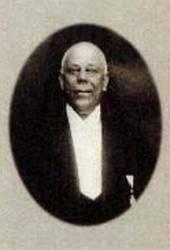Sinopsis
In 1909, the first permanent cinema was opened in the hotel "Paris" in Belgrade, and soon afterwards other permanent picture theatres were opened in the capital and in other cities. On the eve of World War I, there were about 30 permanent cinemas in the Kingdom of Serbia, along with many travelling ones. The repertoire was dominated by French films ("Pathe" and "Gaumont"-), and the copies arrived in Belgrade and Serbia very quickly, frequently only ten days after the opening night in Paris. The first film producers in Serbia came from among the owners of permanent cinemas. In 1911 Svetozar Botoric, the owner of the picture theatre "Paris" in Belgrade, engaged French cameraman Louis de Berry and started the production of newsreels about events in the capital - The Solemn Delivery of Old Flags and the Receiving of New Ones, The Departure of the King, the Heir to the Throne and Princess Jelena to St. Petersburg, and others. In Autumn of the same year, he shot and showed the first Serbian feature film Karadjordje, a historical drama about the life and work of the leader of the First Serbian Uprising. The film was directed by the actor and director Ilija Stanojevic (Cica Ilija), and the roles were performed by the members of the Serbian National Theatre. The film was received as a great success by the audience, and it was shown after World War I as well, but no copies of this or other films by Botoric have been preserved. The Savic brothers, who owned the "Modern Cinema" in Belgrade, began film production at the same time as Botoric. Their cameraman was Carl Freund, who later became a famous German and Hollywood film-maker and the Oscar prizewinner for camera. Besides many newsreels, which were filmed in Belgrade and in the provinces, the Savic brothers produced the feature film The Woeful Mother (1912), a melodrama in which the leading role was performed by the tragedienne Emilija Popovic. The third film producer in Belgrade was Djoka Bogdanovic, the owner of the cinema "Kasino". He developed his activity in 1913, in the period of Balkan Wars. The Russian photographer Samson Cernov filmed for him and they created valuable documentaries about the Second Balkan War and about everyday events in Belgrade in 1913-1914. The greatest part of these films has been preserved, and is valuable historical material being kept in the Archive of the Yugoslav Film Library. Along with de Berry and Freund, Slavko Jovanovic, the first Serbian cameraman, mastered the skill of working the cine-camera and very soon he independently began to shoot short documentaries for Botoric and the Savic brothers.
